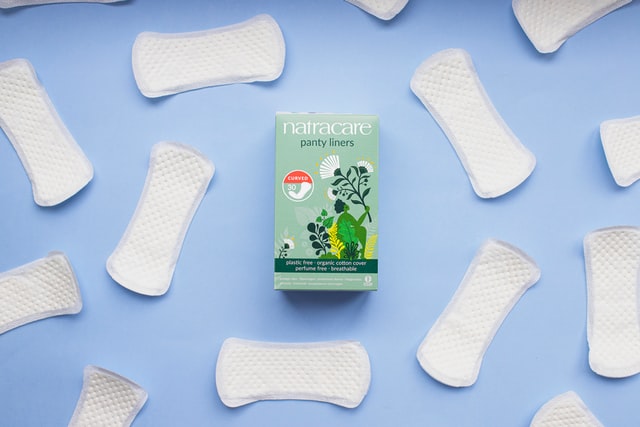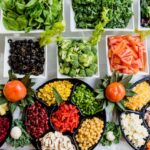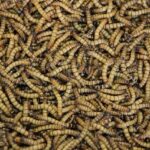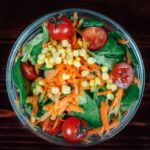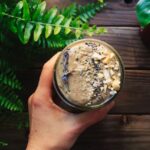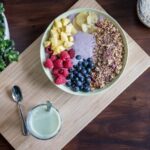If you’re wondering if eating healthy can affect your period, read this article. It contains tips on how to eat to help alleviate PMS symptoms and iron-rich foods to prevent anemia. In addition, learn how to safely regain weight and return to regular menstruation. Read on to discover the top foods for women during your menstrual cycle. You’ll be happy you did! After all, eating well is one of the most important aspects of maintaining a healthy body.
Vitamin E relieves PMS symptoms
Women who suffer from premenstrual syndrome (PMS) may find some relief from taking Vitamin E and essential oils. A recent study suggests that these compounds have therapeutic effects. Vitamin E and essential oils, taken in capsule form, reduced PMS symptoms in 120 women. There were no significant side effects. This study has important implications for women who are prone to PMS. Here’s what you need to know about Vitamin E and essential oils for PMS.
In a clinical study, women taking a vitamin or a combination of vitamins had a significantly lower risk of experiencing PMS than those taking a placebo. This difference might be attributed to the fact that the placebo group suffered significantly more from symptoms. Nevertheless, the results from this trial suggest that Vitamin E relieves PMS symptoms and reduces pain. Further research is needed to better understand the mechanism of action. Ultimately, it may be better to look at the relationship between antioxidant vitamins and PMS symptoms.
A recent study conducted in Australia found that supplement therapy with Vitamin E and D can significantly reduce the frequency and severity of PMS symptoms. It was safe, affordable, and proved to be effective in relieving PMS symptoms. Although there are few randomized controlled trials on the topic, the results showed that vitamin E and D were more effective than placebo in relieving PMS symptoms in women with PMS. But more research is needed to make a final conclusion.
A combination of symptoms called premenstrual syndrome (PMS) usually occur two to four weeks before a woman’s period. However, most women experience symptoms for at least one week prior to their menstruation, and they will typically last for a week after their period. This disorder is related to the changing levels of hormones in the body during the menstrual cycle. While stress does not cause PMS, emotional problems can make symptoms worse.
Iron-rich foods help prevent anemia
Foods rich in iron are important during your period, as they help replenish the iron that you lose through the bleeding. While eating meat products can maintain your iron level, make sure you eat them in moderation. Vegetables like spinach and fenugreek leaves are also rich in iron. Other good sources of iron include orange juice and dried beans. For vegetarians, tofu and fortified cereals are good options.
It is important to remember that the amount of blood lost during menstruation varies between women and is highly dependent on age, health, and hormones. Also, women experience different menstrual cycles, and heavier cycles are more likely to develop anemia. The National Health Service defines heavy menstrual bleeding as bleeding that is more than 80 ml in one seven-day period. Women with heavy periods may also need double protection during their period, as blood will seep through clothing and bedding.
Fortunately, there are plenty of naturally rich sources of iron, especially non-heme iron. Dark leafy vegetables and legumes are rich sources of iron, as are many types of seafood. Adding a little to your diet can boost your iron level over the course of a few weeks. Dried fruits are also great sources of iron. Dates, raisins, and figs are packed with nutrients and iron. Additionally, seeds are a great source of iron. They also contain calcium, which helps keep your bones healthy. However, if you’re on a low-iron diet, you may want to avoid dairy products.
Heavy menstruation also increases your risk of developing anemia. Heavy periods cause your body to lose about two tablespoons of blood every month. Because of this loss, your hemoglobin levels decrease, causing you to lose a lot of iron. As a result, you may develop anemia during your period. Your doctor will likely suggest an iron supplement or dietary changes that can improve your condition.
Regaining weight safely can resume menstruation
For many women, regaining weight is critical to their overall health and resuming menstruation is no different. When you’re underweight, your body’s fat content decreases, inhibiting the production of hormones like estrogen and progesterone, which are necessary for normal menstruation. Gaining weight can restore these levels by introducing a diet rich in healthy fats. However, regaining weight is only one part of the equation. The diet must be tailored to your individual needs and circumstances, but it’s the best starting point to ensure that you’re in a healthy weight range.
Caffeine causes period cramps
Studies have shown that caffeine can aggravate period cramps. If you suffer from this condition, avoiding caffeine and reducing its intake during your period are the best ways to avoid them. During your period, your body produces prostaglandins, which start a chain reaction that triggers the pain and discomfort. This cascade can result in increased intensity and frequency of cramps. Caffeine is a stimulant, so it is important to avoid it during this time.
Consuming caffeine increases the chance of period cramps and can also contribute to PMS symptoms. Since caffeine is a vasodilator (it causes blood vessels to dilate), it can lead to headaches, fatigue, and dehydration. Several studies have indicated that drinking coffee causes menstrual cramps, but they have not proven this yet. While some dietitians agree that coffee can increase the risk of cramps, others find inconclusive evidence that caffeine may increase the intensity of period pain.
According to a study published in the Journal of Taibah University Medical Sciences, drinking coffee during your period has been associated with heavier and longer periods. However, women should avoid drinking coffee during their period to ensure that they don’t experience cramps or other symptoms that might be exacerbated by caffeine. However, the benefits of caffeine are not universal. For many women, it is best to track their intake of caffeine to determine whether it helps ease their symptoms.
Drinking coffee during your period can be a problem, but it does not have to. Try drinking half-caffeinated tea or coffee instead. They can also help reduce the intensity of cramps. If you’re not a fan of coffee, try smoothies. These can help you get your daily nutrients and eliminate the cramps during your period. If you’re worried about the caffeine content in coffee or tea, try drinking a cup of fruit juice.
High caloric intake can cause infertility
If you’ve ever been told that your high caloric intake may have affected your fertility, you’d better think again. It is not uncommon for women to experience infertility, and it can be caused by many different factors. Not only does your body need more calories than usual to produce an egg, but it also tends to store fat that can interfere with ovulation. Eating more trans fat can have negative consequences on your ability to conceive, including increased stress and poor diet.
Consuming full-fat dairy products is a great way to boost ovarian function and prevent infertility. However, it may not be the healthiest option for long-term use. Adding more dairy products to your diet can lead to an increased calorie intake. In addition, a high-calorie diet requires cooking healthy ingredients from scratch. While this method may seem like a quick way to improve your chances of conceiving, it can also be a lengthy and time-consuming process.
In the Nurses’ Health Study, researchers found that women who consumed large amounts of carbohydrate-rich foods were at a higher risk of ovulatory infertility. These foods have a high glycemic index, which means they’re broken down quickly. To improve your chances of conception, switch to a low-glycemic-index diet and replace refined sugar-laden products with whole grains and 100% whole-wheat bread.
There are many causes of infertility. Couples can’t control all of them, but the habits they adopt can significantly affect their ability to conceive. Dietary habits, a healthy body weight, and good sperm quality can all affect the outcome of trying to get pregnant. Make sure to choose foods rich in nutrients, such as folic acid and iron, that are beneficial for your health and the health of your baby.
